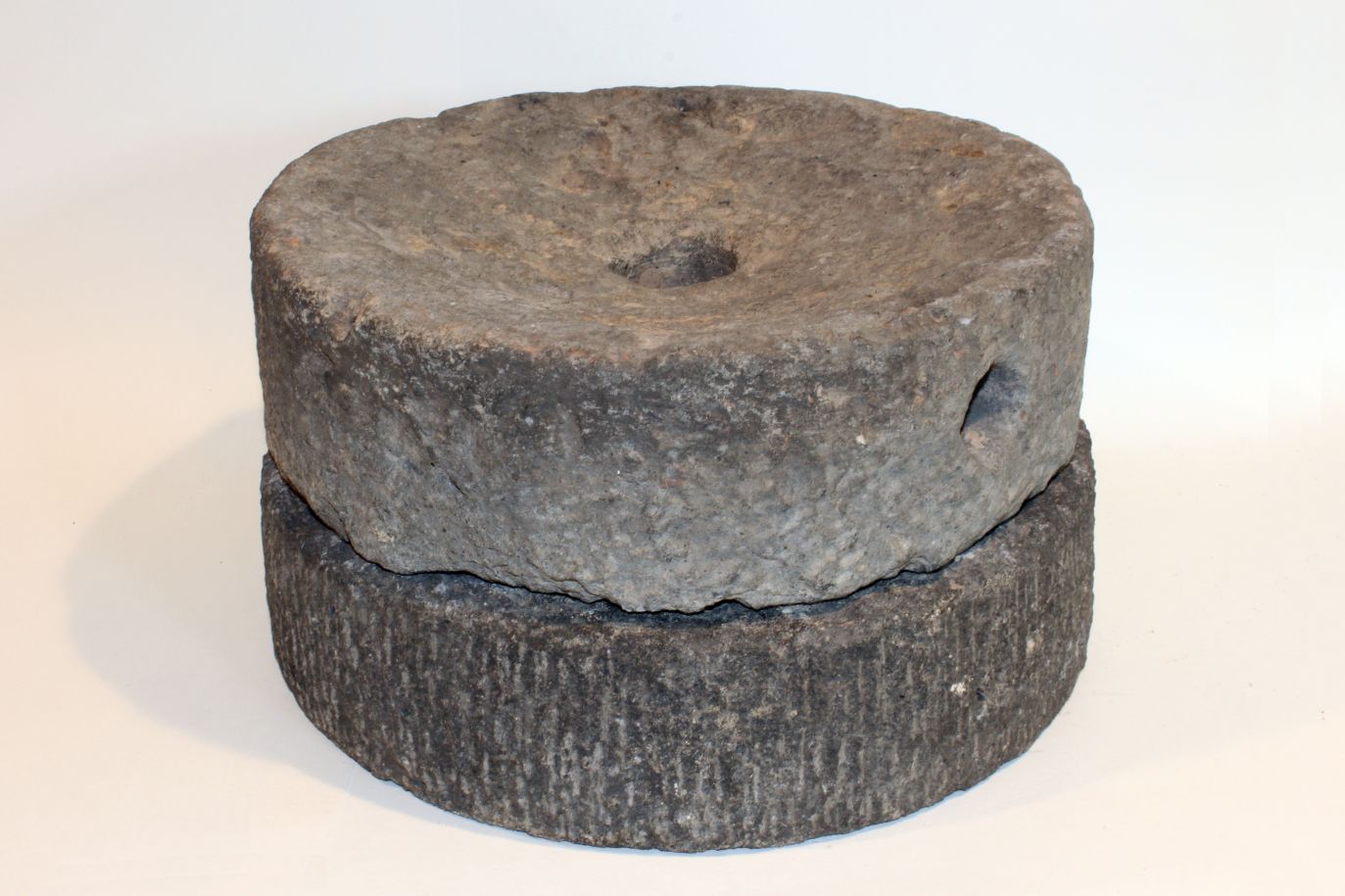
Foto: Martin Langenberg
Roman soldiers must grind their own grain, because the daily rations of wheat are issued unground. Each eight-man room in the military camp had a hand-operated mill with which the grain was usually coarsely ground and used to make a kind of porridge known as puls. The fare provided to Roman soldiers was considerably better than that of the ordinary civilian population. Although cereals made up the largest part of the soldiers’ meals, they also received a sufficient amount of protein- and vitamin-rich food. Meat, bacon, cheese, lentils and beans along with salt and vinegar were part of the standard victuals. Excavations in the legionary camp in Neuss have uncovered evidence of a rich variety of fruit and vegetables. Garlic was highly prized by soldiers for its health-giving properties. Discoveries of rice, olives and chick peas show that even ordinary soldiers had access to these imports from the south.